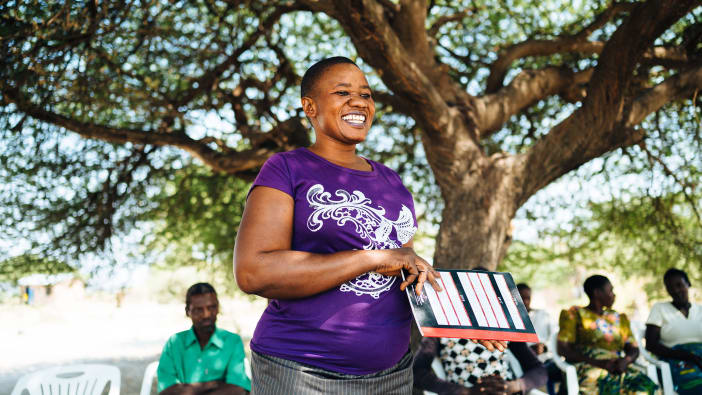Many widows and orphans in Africa are denied their inheritance rights to property or land, which often go to the husband’s brothers or other male relatives instead, leaving the family homeless and destitute.
Agnes was born in the province of Makamba in Burundi. Her parents were farmers and lived a peaceful life with their nine children until 1994, when violence began to sweep through their province. Believing their lives to be in danger, the family fled with what they could carry into neighbouring Tanzania. Thousands of others also fled Burundi to live in refugee camps. The family left the camps because of over crowding and the constant threat of disease. For five years they moved around, trying to make a living, but then Agnes’ father died. Her mother decided to return to Burundi where she thought she could find support from her relatives.
But in 1999, Agnes’ mother died suddenly. Agnes and her younger brothers and sisters were forced to find a new place to live. She sought help from her uncles, but they would not receive or protect them. They had taken her father’s lands and left nothing for his children.
Desperate, and with nowhere else to go, Agnes looked around for help. A neighbour offered them an old ruined house next to his farm. Agnes made a roof for it out of banana leaves and for two years the family lived there, scraping a living, helped by the kindness of neighbours.
The government of Makamba made some marshland available for cultivation as part of a Tearfund food security project. People were encouraged to form agricultural associations where people could work together and support each other. In 2003, Agnes joined one of these groups, and began to farm. The group provided her with help and advice, as well as seeds and tools. She was now part of a positive and supportive network. The group helped Agnes and her family build a house. They built the walls of brick and used skills within the group to provide the carpentry. Agnes used money she had earned herself from the sale of seed to buy doors and windows for the new house.
In 2005, Agnes started income-generating activities to help support her family. She has now rented more land and hires other people to work it. She continues to serve her community by being active in the campaign against HIV and AIDS. Agnes is also taking a leading role in the association’s application to the bank for loans to increase their productivity.
Agnes is now 21 years old and living a life she could never have dreamed possible. She was a young girl left destitute and vulnerable with responsibility for the welfare of her brothers and sisters. She now has property, a little land and a recognised position within her community. All this is a result of working hard in partnership with others.
Discussion questions
- How did Agnes lose her inheritance rights?
- What were the key factors that helped her rebuild her life?
- What opportunities are there in our community for people who lose their inheritance rights?
The author, Benoit Barutwanayo, works for Tearfund as Area Co-ordinator for Makamba. Email: [email protected]









